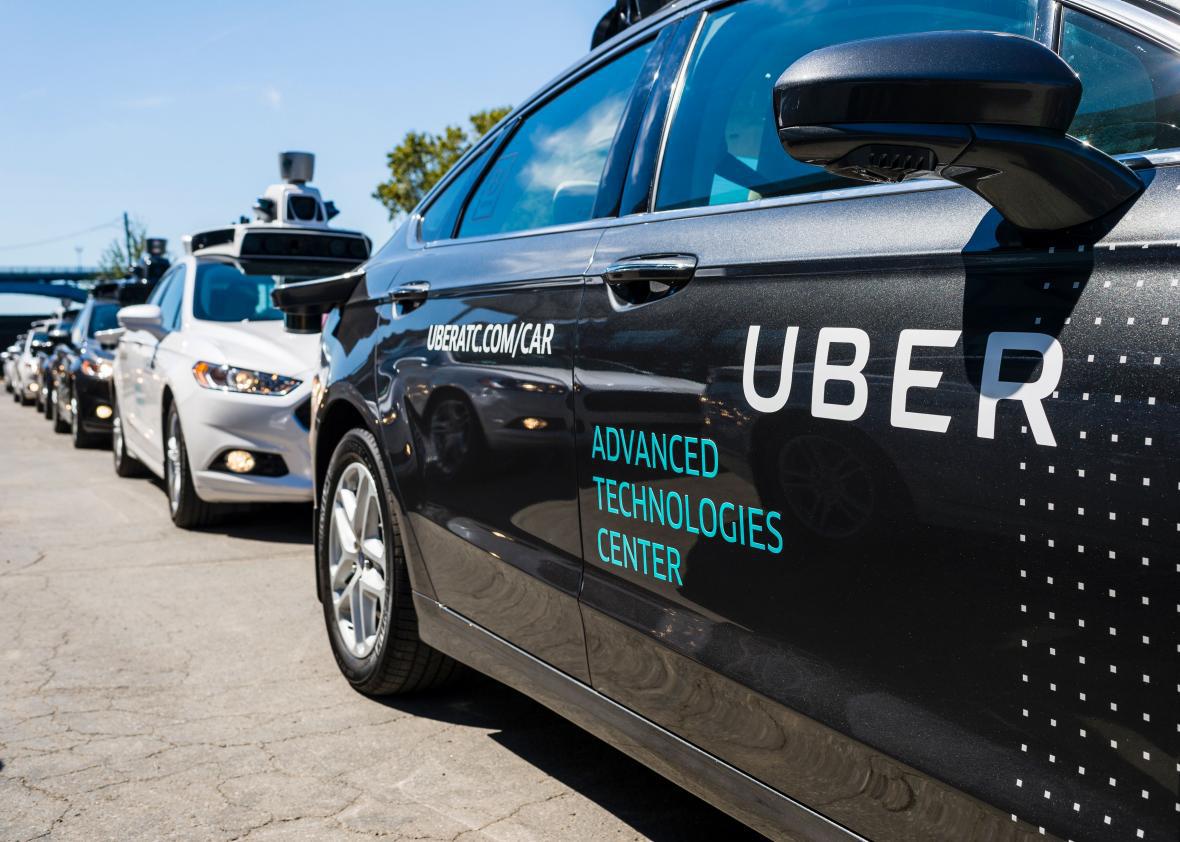It’s been a time of upheaval at Uber. The company is facing a lawsuit from self-driving competitor Waymo over the use of confidential trade secrets. Its founder and CEO, Travis Kalanick, was forced out this summer, replaced by former Expedia CEO Dara Khosrowshahi. And a movie is even in the works about its sexual harassment problems, which were exposed in a viral essay by former employee Susan Fowler.
But a report Monday shows that the company hasn’t changed its approach to a crucial technological development. Even as its case against Waymo heads to court, Uber isn’t slowing its investment in the self-driving car space. The company plans to buy as many as 24,000 self-driving Volvo vehicles between 2019 and 2021, Reuters reports, as part of its race to transform the ride-hailing industry.
In the deal, Uber will buy Volvo XC90 SUVs, which typically retail for $50,000, and outfit the cars with their own self-driving technology. When the fleet hits the streets, Uber users would be able to order the cars through the Uber app as an option or alternative to a traditional human-driven Uber.
In one respect, the news isn’t surprising. Uber and Volvo have already been working together for some time. Uber has been testing out prototype Volvo vehicles in Arizona and Pennsylvania for more than a year (albeit with a driver positioned behind the wheel, just in case). On the other hand, the timing does feel unusual—even if only for its reminder of the company’s desperate need to push forward in the self-driving car battle, all other issues aside.
In 2016, Kalanick made it clear that self-driving technology was a priority, calling the development of autonomous vehicles “existential” to the company. “The world is going to go self-driving and autonomous,” Kalanick said in an interview with Business Insider. “What would happen if we weren’t a part of that future? If we weren’t part of the autonomy thing? Then the future passes us by, basically, in a very expeditious and efficient way.”
For years, Apple has been rumored to be working on a self-driving car, dubbed “Project Titan.” Waymo, under the Alphabet umbrella, struck a deal with Uber competitor Lyft to get its technology onto roadways more swiftly. And then in China, Baidu is swiftly getting up to speed in the space. To hop on the self-driving bandwagon, Kalanick acquired Otto, a self-driving truck startup headed by former Google Waymo employee Anthony Levandowski. But that acquisition, as it turned out, came with baggage: Waymo alleges that Uber stole trade secrets from the company after hiring Levandowski.
Uber acquired Levandowski’s company in August 2016 and then put him in charge of the company’s autonomous car efforts. But before leaving Waymo to build Otto, Levandowski allegedly downloaded more than 14,000 confidential files. Uber fired Levandowski in May for not cooperating with the Waymo investigation. According to investigators, he had also downloaded 50,000 Google work emails and thousands of smartphone photos of Google products and whiteboard illustrations, a due diligence report released in early October revealed. Uber and Waymo are set to go to court on December 4, in a trial anticipated to run until December 20. Among the things that will be decided are whether Uber owes Waymo as much as $2.6 billion over a single trade secret.
And then there’s the internal turmoil going on at Uber, which includes numerous sexual harassment charges, reports of a toxic culture at the company, the departure of multiple top-level executives, and the hiring of Khosrowshahi as CEO. Even Monday, the day the Volvo deal was reported, the state of Colorado fined Uber $8.9 million for hiring drivers with driver’s license problems and felony convictions. As CEO, one of Khosrowshahi’s first public statements on Twitter addressed the company’s cultural issues. “This company has to change,” Khosrowshahi said in a tweet posted by Uber’s official communications account. “What got us here is not what’s going to get us to the next level.”
Khosrowshahi previously forged Expedia into one of Fortune’s Best Places to Work, and Slate dubbed him “the anti-Travis Kalanick.” But technology waits for no one. If Uber wants to stand a chance to recover from all this, it has to keep pushing forward—and the autonomous car space is where it needs to happen. For all the talk about changing Uber’s culture, the company’s future still requires getting ahead.
